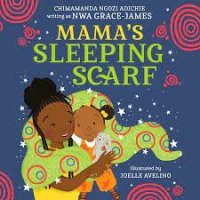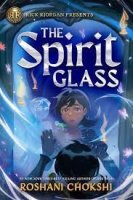This one should be a One Country One Book read.
I had the great luck to be invited to a dinner at ALA Mid-Winter 2020 in the honor of two authors, Victoria Jamieson and Omar Mohamed. You probably know Victoria Jamieson from her book Roller Girl. It was amazing. You probably don't know the name Omar Mohamed. He doesn't have another book. He does have a story and it's an amazing story. It was a privilege to have him come and sit at our table as the evening went along and he happened to be sitting there when the wait staff delivered the meal ordered by the person who had been sitting where Omar now was perched. It was a steak dinner with all the trimmings. It looked good and I just sat there looking at him and thinking about his life and how he had lived so many days in a refugee camp when the 15 days worth of food they handed out only lasted for 10 days. Kids fainted at school because they were so weak from hunger. Now he was looking at a plate with a steak on it that just dropped down in front of him.....I wondered if he had moments when he flashed back to those other days.
Omar Mohamed's story really begins in Somalia where his father was a successful farmer. Omar's family had everything they needed. They had a good life. Then the day came when the soldiers appeared out of nowhere and killed Omar's father. Omar and his younger brother, Hassan, had to run. They had no idea where their mother was but they have hope that one day they will see her again.
Omar and his brother fled their home and their village along with their neighbors. No one was safe. No where was safe. They hit the road with what they could carry and they kept going until they got to a refugee camp in Kenya called Dadaab. There are hundreds of thousands of refugees in Dadaab. Omar and Hassan lived with the woman who was their neighbor back in Somalia. Younger brother Hassan has seizures and Omar and his neighbor worry about getting him good medical care.
Every day in Dadaab is just like every other day. Omar and Hassan stick together and Omar protects his brother from strangers. Then, the day comes when a block captain finds Omar and encourages him to go to school. School..... should he leave Hassan? Can he leave Hassan?
Okay, so what kind of dreams would you have in a place like this? This place where every tent is the same, every day is the same, the heat is the same, the lack of food is the same, the hopelessness is the same. Would you go to school? What good could it do? What difference could it make in your life?
This is an amazing story of perseverance and courage. This is a heartbreaking story of the desperate lives thousands of people live in refugee camps. This is a story of great hope, of the power of education, of the pain of loss and the incredible resilience of Omar Mohamed who not only survived living in a refugee camp but is now working to help the people still living there.
Omar ate that steak dinner back in Philadelphia on a cold night in January and honestly I just marveled at his ability to adjust to his life in the United States. This country, the U.S.A. is the Holy Grail for all those people back in Kenya. They pray for word to come that their family might be granted an interview to even be considered for immigration to the U.S. If someone gets an interview, everyone gathers in their tent and shares in the excitement and the hope - the dream that might come true.
The story in When the Stars Are Scattered is Omar's story and Hassan's story but it's also Miriam's story. I hear there will be a second book and I have such hope that Miriam, a remarkable girl, will get a chance to have her best life.
We have so much to be grateful for here. So much to be grateful for and one of the biggest gifts we have is our education system. Read this story and your perspective will change. Read this story and appreciate what you have and how you have a chance at a future. You aren't sitting in a tent day after day hoping the food will last. You can probably get a steak dinner tonight - if you want one.
This is a life-changing journey we are privileged to share. Omar is a perceptive guide. Thank goodness he made it out of that camp and brought his great heart with him. Now, it's up to us to figure out how to use our lives to the fullest and maybe even to consider how we might be part of the chain that offers hope to those still waiting in Dadaab. Would you want to stay there forever?
264 pages 978-0525553915 Ages 9-13
Keywords: graphic novel, memoir, refugee, Africa, brothers, survival, education, hope, loss, dreams, civil war, Social Studies Curriculum, 9 year old, 10 year old, 11 year old, 12 year old
Recommended by: Barb Langridge, abookandahug.com
*****************
Heartbreak and hope exist together in this remarkable graphic novel about growing up in a refugee camp, as told by a Somali refugee to the Newbery Honor-winning creator of Roller Girl.
Omar and his younger brother, Hassan, have spent most of their lives in Dadaab, a refugee camp in Kenya. Life is hard there: never enough food, achingly dull, and without access to the medical care Omar knows his nonverbal brother needs. So when Omar has the opportunity to go to school, he knows it might be a chance to change their future . . . but it would also mean leaving his brother, the only family member he has left, every day.
Heartbreak, hope, and gentle humor exist together in this graphic novel about a childhood spent waiting, and a young man who is able to create a sense of family and home in the most difficult of settings. It's an intimate, important, unforgettable look at the day-to-day life of a refugee, as told to New York Times Bestselling author/artist Victoria Jamieson by Omar Mohamed, the Somali man who lived the story.---from the publisher
***************
“As many as 60,000-90,000 are jammed into each square kilometre, with families of up to a dozen sharing small shelters.”
-- Al Jazeera, “First coronavirus case found in Bangladesh Rohingla refugee camps.” (5/14/20)
“There’s a starman waiting in the sky
He’d like to come and meet us
But he thinks he’d blow our minds”
-- David Bowie (1972)
“‘Fatuma? What do you think I should do?’
‘I’ve been thinking a lot about this, Omar. You are a big boy now and I can’t make this decision for you. If this is God’s will that you should go to school, then I won’t stand in your way. I think you should look deep inside yourself and see what God is telling you to do. If this is God’s will, then he will make everything OK. Don’t worry. Everything will be OK.’
Fatuma is always saying ‘Everything will be OK’...But sometimes that’s hard to believe.
I barely slept that night, as usual--but it wasn’t just because I was uncomfortable.
Sometimes when I can’t sleep, or when something’s bothering me...I know it sounds silly, but I go outside and look at this one star.
I don’t remember much from when I was little. Or maybe, I don’t have much I want to remember.
I remember the star, though. Maybe it’s not even a real memory, but this star makes me feel safe, like my mom and dad are nearby. I used to actually talk to the star, which seems really childish to me now. Still, feeling like my parents are close makes it easier to make big decisions.
If I went to school, I’d only be away from Hassan for a few hours. I’d come right home.
But…my mom thought she would come home again too.”
Living through the beginning of the pandemic has made for an emotionally tough couple of months. I’ve been thrown off of my game. Past concerns of all sorts have flown out the window, dwarfed by the fear of catching this virus and ending up in the hospital on a ventilator; possibly dying. These times have made me uncomfortable in a manner that I’ve never before experienced. The fears, and limitations on what I can safely do, make this the closest I’ve felt to living in a war zone.
I’ve been sufficiently distracted that I didn’t even catch, until the end of the book, that Omar, the boy I was reading about in WHEN STARS ARE SCATTERED, was Omar Mohamed the book’s co-author. In a way, this was a good thing. Had I realized this about the character, I wouldn’t have spent the entire graphic novel reading with white knuckles, wondering whether the protagonist was going to survive, no less become the author of an eye-opening memoir for 10-14 year-olds.
Omar was born in rural Somalia. He was a small child, accompanying his farmer father, when his father was shot by a rebel group. Omar then ran home and told his mother, who took off to find the father. That’s the last Omar saw of her. Gunshots got louder. Chaos reigned, Omar had no choice but to immediately escape with his fellow villagers, his special needs brother Hassan by his side. Omar and Hassan thereafter spent their formative years in a refugee camp in Kenya, being fostered by Fatuma.
Then, around age ten, thanks to Fatuma’s willingness to watch Hassan, Omar had the opportunity to attend school for the first time. It’s a refugee school in the camp.
This is Omar’s story. By the end of the book, thanks to good fortune and Omar’s dedication to school, the two brothers are chosen for resettlement in the United States. From the afterword, we learn that Omar attended college and later established a project that empowers students living in refugee camps.
WHEN STARS ARE SCATTERED, a stunning memoir in graphic novel format, is the story of Omar, Hassan, and Fatuma, living and learning in the Dadaab Refugee Camp in Kenya.
It’s a story I won’t soon forget.
Recommended by: Richie Partington, MLIS, California USA
See more of Richie's Picks
https://www.facebook.com/richiespicks/






